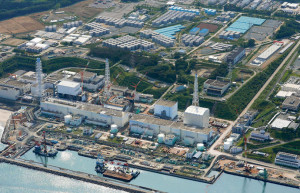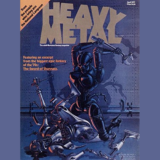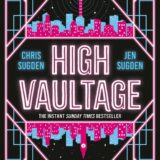 I’m worried about Fukushima Dai-Ichi again.
I’m worried about Fukushima Dai-Ichi again.
While the amount of radioactivity released into the environment in March 2011 has been estimated as between 10 percent and 50 percent of the fallout from the Chernobyl accident, the 400,000 tons of contaminated water stored on the Fukushima site contain more than 2.5 times the amount of radioactive cesium dispersed during the 1986 catastrophe in Ukraine.
And that’s not to mention the spent fuel rods stored in a pool on top of Building 4, which is doing a slow-motion Leaning Tower of Pisa impression. If I were a Tepco executive at this point, I would strongly consider hiring bodyguards.
But when I worry about this stuff out loud, my aunt V. often reminds me that when she was a child, the United States was exploding nuclear bombs all over the Nevada desert, often in secrecy, with a fantastically cavalier attitude towards the health and environmental risks obtaining. This has not prevented millions and millions of Americans who were children then from attaining a ripe age in good health. No incident is just like any another incident but I accept (with teeth gritted and nails digging into my palms) that my concerns about Fukushima Dai-Ichi are probably closer to paranoia than prudence. And I still endorse nuclear power as a worthy alternative to fossil fuel.
Nuclear weapons, of course, are another story. The book you should be reading right now, if you care even a little bit about, er, not getting mushroom-clouded or dying a horrible death from nuclear fallout, is Command and Control, by Eric Schlosser. Yeah, the Fast Food Nation guy. Schlosser opened a lot of eyes, including mine, with his takedown of the fast food industry, and now he’s done it again with an account of sixty years of foul-ups, life-endangering secrecy obsessions, and near-catastrophes in the nuclear defense industry. You may have noticed news reports that it’s now confirmed that the 1961 Goldsboro B-52 crash actually came within a hair‘s breadth of turning the Eastern Seaboard into a cinder park. One little electronic toggle switch saved us. How many of you guys would never have been born if that bomb had gone off? I wouldn‘t have. It was Schlosser who pried that little detail out of the Air Force. Read this book and make noise.



But maybe not twice. And not late at night when the wind is blowing.
***
1. I’m only tentative about GRRM’s nihilism. It all depends how the end of the series plays out. This is an author known for leading readers up the garden path and then spinning them around and pushing them into the fishpond, so some sort of redemption may yet be in store for Westeros.













I grew up in the late ’50s and ’60s, and can still remember my parents and their generation of science fiction fans discussing and making serious plans to build nuclear bomb shelters…with some actually doing so. I can understand how most of my generation has grown up inured to the potential of any nuclear holocaust, especially after being taught to duck and cover, as though our grammar school classrooms, and thin wooden desks would protect us. Although, I think we have distanced ourselves too far from disasters like Fukushima, when no mention was made of the latest lethal radioactive release in the evening news. The late Frederik Pohl wrote an excellent novel, CHERNOBYL, about that event. Let us hope that someone of equal ability and talent does so about Fukushima. It might enlighten otherwise complacent readers, as I suspect that it is not nihilism at work here but cynicism. Certainly a wake-up call is in order.
There are two different issues here. While I am concerned regarding Fukushima and the overall handling of these nuclear incidents; those concerns really boil down to my firm belief that private enterprise (e.g Tepco, Met-Ed) whose primary goal is to maximise profits regardless of externalities should never be allowed to operate nuclear plants. When safety can be trumped by emphasis on profits or when safety can be trumped by ideology/political climbing (Chernobyl — the engineers had been ordered by politicos to shut down the reactor while disabling all of the various fail-safes to see how much extra energy could be pulled during a reactor shutdown) then the public is not protected. Nuclear fission power is a potentially dangerous technology, but if proper safeguards are in place these dangers can be controlled and minimised; I live 110 km (about 68 US miles) from a nuclear power complex of six active reactors and I rarely think about them.
The second issue is global nuclear war. This concerned me very much when I was young and the Cold War was still ongoing — I recall selecting an apartment because it was located in overlapping areas of ground zero for potential Soviet targets in my city. It concerns me less at present. While it is possible that there could be a global nuclear war; in the present geo-political climate, it is unlikely. Is it possible that India and Pakistan may have a nuclear war, yes. Is it possible that Israel and whatever Muslim power in that region acquires nuclear weapons would have a nuclear war, yes. Is it possible that the major nuclear powers (USA, Russia, China) would be pulled into a global war due to either of these potential incidents. not very. So I don`t worry too much about this at the present. I think that many people feel the same, which is why nuclear apocalypse is not in vogue.